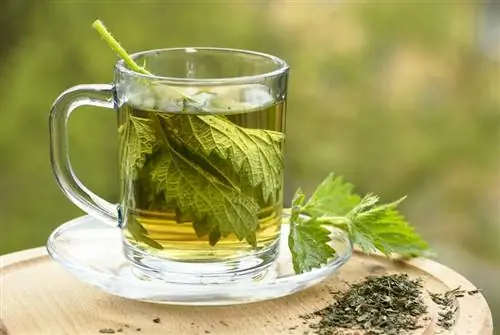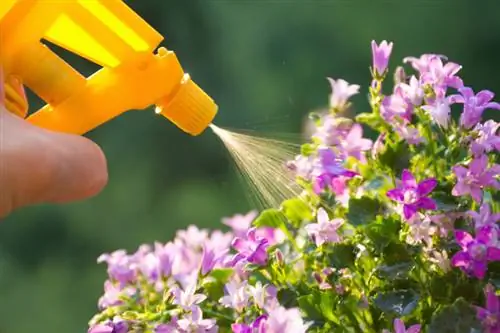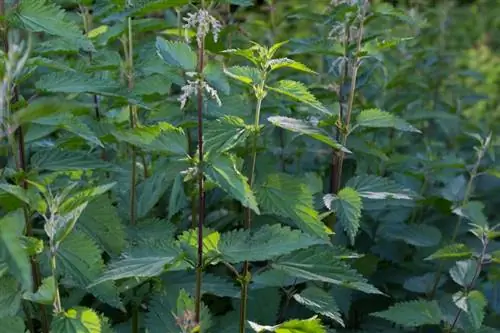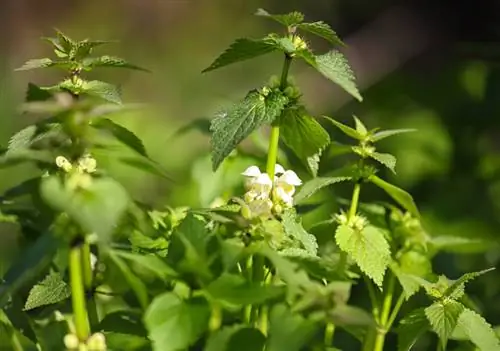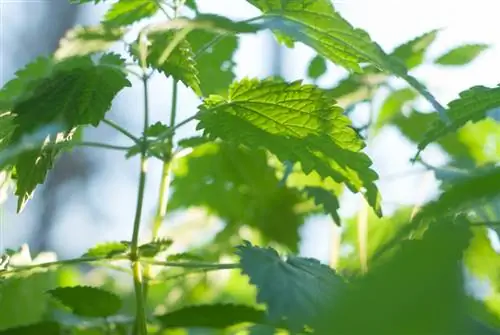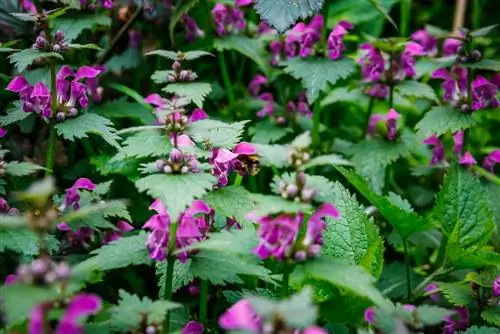- Author admin leonars@hobbygardeners.com.
- Public 2023-12-16 16:46.
- Last modified 2025-01-23 11:20.
Stinging nettle was already known as a medicinal herb in the Middle Ages. Many rheumatism sufferers voluntarily subjected themselves to contact with their burning hairs. But stinging nettle doesn't just help against joint problems. It has a much wider range of applications!
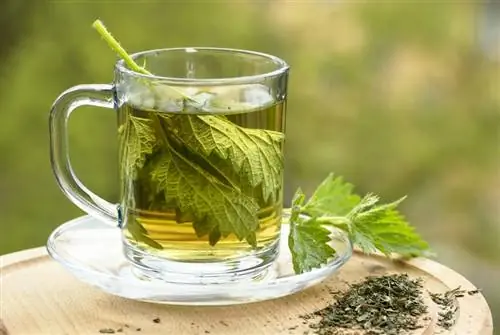
What is the nettle known for as a medicinal plant?
The stinging nettle is a medicinal plant that is used for drainage, prostate enlargement, rheumatism, joint problems, hair loss and iron deficiency. Important active ingredients are flavonoids, steroids, essential oils, minerals, trace elements, serotonin, acetylcholine, caffeoylmalic acid and vitamin C.
Stinging nettle for drainage
The best-known effect of stinging nettle is probably its influence on drainage in the body. It contains a lot of potassium, which is considered to increase water. This makes stinging nettle the ideal choice for water retention, kidney grit and bladder infections. The nettle leaves should be used for this.
The leaves are prepared fresh or dried as a tea. Take about 3 teaspoons of dried nettle leaves in 150 ml of water and let the tea infusion steep for around 10 minutes.
Stinging nettle for prostate enlargement
The fact that stinging nettle can have a healing effect on prostate enlargement is not completely uninteresting for men. It does not shrink the prostate. But it makes urination easier. Use the roots for the purpose.
Stinging nettle for rheumatism and joint problems
The stinging nettle is also considered medicinal in relation to rheumatic complaints such as arthritis. It is the active ingredient called caffeoyl malic acid that plays the main role here. On the one hand it has an anti-inflammatory effect and on the other hand it relieves pain.
Nettle seeds for hair loss
Attention: Nettle can also be effective against hair loss. Admittedly, it's probably not much more promising than other herbal remedies for hair loss. But it's worth a try! The seeds are said to stimulate thicker hair growth when consumed regularly.
Stinging nettle against iron deficiency
Unlike spinach and other foods that are considered iron-rich, stinging nettle is full of the trace element iron. Anyone who suffers from an iron deficiency would do well to compensate for their deficit with the help of stinging nettle.
Which active ingredients are so special?
The leaves and roots of stinging nettle are used for medicinal purposes. Active ingredients that gain the upper hand when it comes to their healing effects are primarily these:
- Flavonoids
- Steroids
- essential oils
- Minerals
- Trace elements
- Serotonin
- Acetylcholine
- Caffeoymalic acid
- and vitamin C
Tip
Let as little time as possible pass between harvesting and processing, drying or freezing. The plant parts quickly lose their active ingredients when stored fresh.

